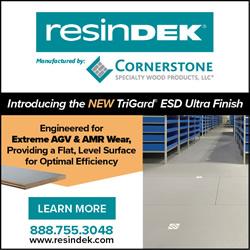Empowering Industry: The Crucial Role of Actuators in Industrial Automation Functions
Discover the pivotal role of actuators in transforming industries through automation. From solar energy to military applications, explore how these essential devices streamline processes and enhance efficiency. Unveil the driving force behind industrial automation in this insightful post.
Industries today heavily rely on automated machinery and processes, marking a significant shift from manual mechanized systems. Automation, derived from the ancient Greek words Auto (meaning self) and Matos (meaning moving), has ushered in highly efficient manufacturing and production processes. Automated equipment not only offers superior performance but also aids in minimizing dangerous assembly and industrial processes that once required human intervention. Actuators, a crucial component in automated devices, play a central role in ensuring the seamless functioning of these systems.
Actuators are increasingly in demand with the rising utilization of automated machinery and systems. Responsible for moving, controlling, or positioning a mechanism or system, actuators contribute to making the working of automated equipment smooth and effortless. These devices come in various types, each with different strokes, speeds, shapes, sizes, and capacities tailored to suit specific applications and ensure optimal actuation.
Several industries have witnessed the indispensable role of actuators in automating processes that were once manual. Let's delve into a few sectors where actuators play a crucial role:
Solar Industry:
Actuators, including ball screw and ACME actuators, are integral to automating various solar applications such as solar tracking devices, solar power concentration equipment, and photovoltaic devices. These actuators play a vital role in optimizing the motion of equipment, contributing to efficient solar energy generation.
Military Sector:
Ruggedly built actuators are deployed in military applications, offering complete movement in harsh environmental conditions, extreme weather, and severe attacks. These actuators find applications in tanks, cannon carriers, airplanes, fighter planes, helicopters, ships, and robots.
Satellite Technology:
Linear and rotational actuators are utilized to automate satellite equipment, including dish antennas, sensors, and earth-imaging devices. Specially designed high-quality satellite actuators ensure precise positioning and motion control.
Construction Industry:
Actuators, known for delivering powerful movements, are used in high-speed automated machines for heavy-duty tasks in construction. They provide durable, reliable, and long-lasting performance in machinery like loading trucks, towing trucks, and cranes.
Warehousing:
Modern warehouses leverage highly advanced automated systems with a wide range of actuators. These actuators contribute to the optimal performance of robotic systems, conveyor units, forklifts, and more, ensuring superior precision, power, and speed of operation.
Beyond these sectors, actuators play a crucial role in automating processes across diverse industries, including agriculture, food, medical, nuclear, automotive, manufacturing, arts, entertainment, and transportation.
Actuators, being a critical element in every actuation system, are produced in various specifications by numerous manufacturers. Selecting the right manufacturer becomes crucial to ensuring the best performance from actuators. In this regard, Venture Mfg. Co. stands out as a trusted name, manufacturing high-quality linear actuators for various automation applications across industries. Partnering with leading manufacturers becomes imperative to meet specific automation requirements and achieve optimal efficiency in industrial processes.
Featured Product

